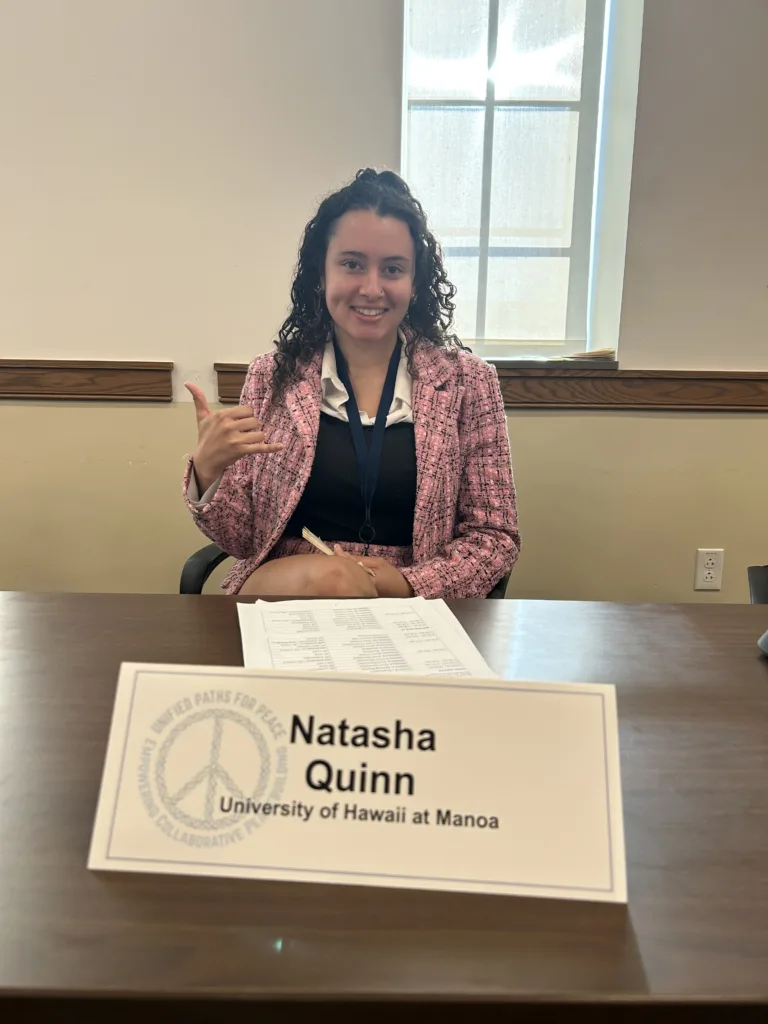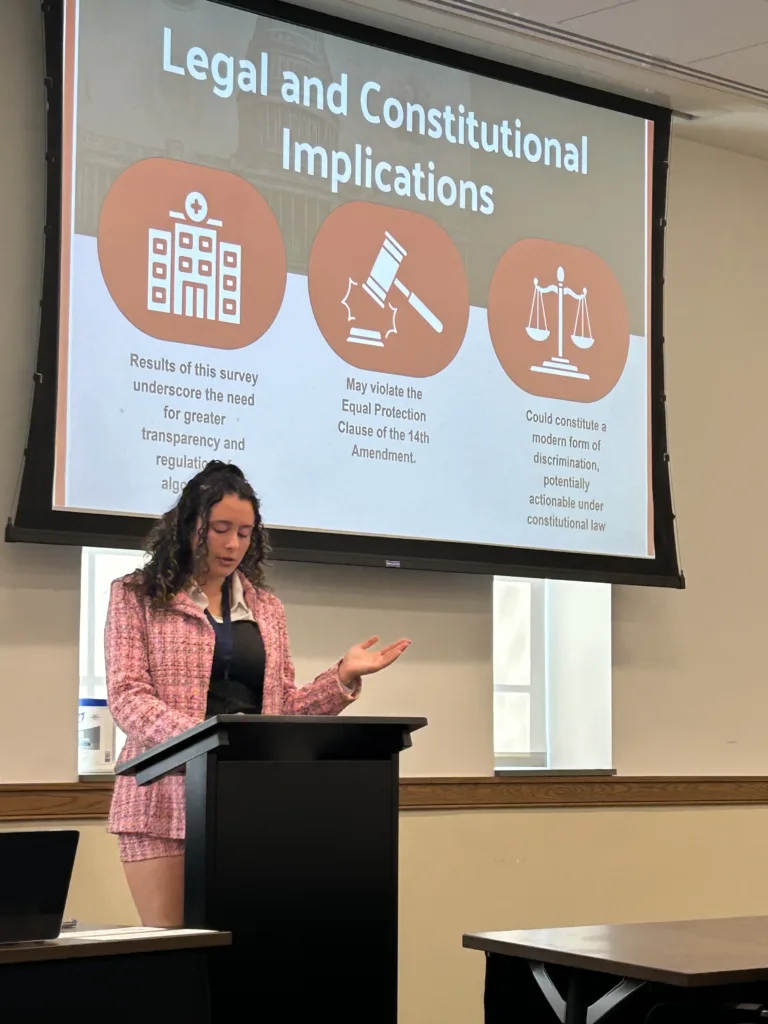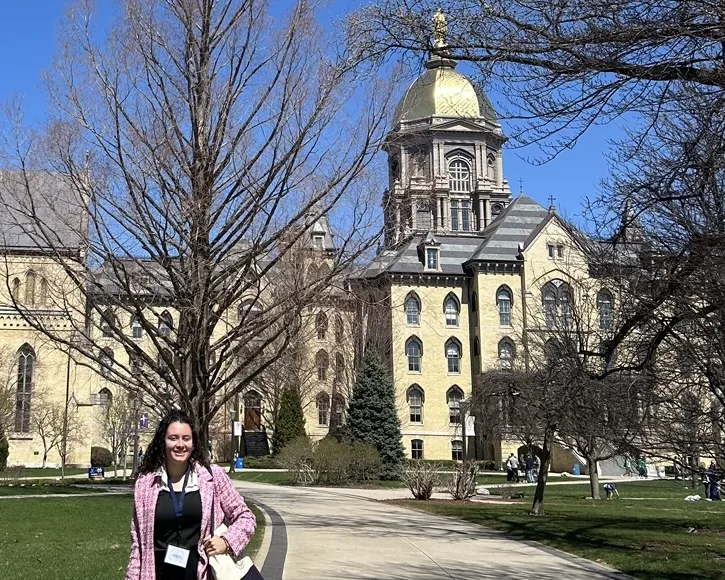By Natasha Quinn
In April, I had the privilege of traveling to South Bend, Indiana to present my research at the Notre Dame Student Peace Conference. This annual gathering provides space for students from all over the world to engage in dialogue on issues related to peacebuilding, justice, and conflict transformation. As a rising senior majoring in political science and pursuing a Peace Corps Prep certificate through the Matsunaga Institute for Peace, the opportunity to learn from such a diverse group of scholars was just too good to pass up.
My project, “Constitutional Harmony: Exploring Algorithmic Bias and Constitutional Reform” was conducted and funded through the Undergraduate Research Opportunity program here at UHM. My presentation explored the role of algorithmic decision-making in perpetuating social and political divisions, with a focus on its impact on constitutional protections, specifically the Equal Protection Clause of the 14th Amendment. It was my intention that the audience gain insight into how existing legal principles can address algorithmic discrimination while preserving innovation. The session offered actionable strategies for policymakers and technologists to mitigate bias and foster equitable outcomes.
At the conference, I was invited to be part of a panel titled “Technology, Violence, and Peace.” I was honored to be presenting with Andrew VanOverbeke, an engineering major from the University of Notre Dame, and Caitlyn Walsh, a linguistics major from the University of Waterloo in Canada. Following my presentation, the panelists had a captivating discussion about the current state of civil division in America. We also compared different political atmospheres from our different states and countries.


While the entire conference was deeply inspiring, one moment stood out as a turning point for me. Originally, the keynote address was to be delivered by Dr. Eman Abdelhadi, a scholar known for her outspoken views on the Israel-Palestine conflict. Just days before the conference, we received a message informing us that her address had been canceled by the university. It was a disappointing decision, especially for those of us who were eager to engage in open, honest dialogue around complex global issues. What followed, however, was powerful. In response to the cancellation, a panel of Notre Dame faculty stepped up to speak on the very topic that had been deemed too controversial. They didn’t shy away from it—they leaned in. They spoke about the university’s responsibility to uphold its values of peace, justice, and academic freedom, even when doing so might risk federal funding or draw political backlash. That act of integrity—faculty using their platform to advocate for principled dialogue — exemplified how true peace work involves courage, especially when it comes to defending voices that are often silenced. That moment left a lasting impression and has led me to consider pursuing a master’s degree at Notre Dame. To be part of a community where students and faculty are willing to hold institutions accountable and push conversations forward, even in the face of pressure, is exactly the kind of environment where I want to grow.
Attending the Notre Dame Student Peace Conference reminded me that peace isn’t passive—it’s active, often uncomfortable, and deeply rooted in truth-telling. I left feeling challenged, inspired, and more committed than ever to using research, dialogue, and advocacy as tools for meaningful change.
